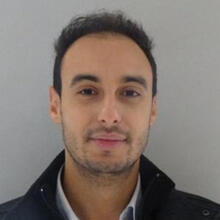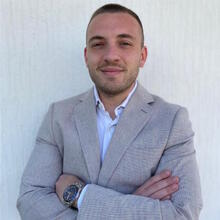
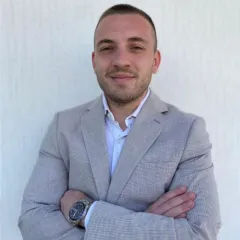
Riccardo CONTI leads the Digital Transformation in preclinical research and overall R&D, ensuring proper digital integration and data storage within the corporate database. Collaborating with various R&D units, he spots their challenges and suggests innovative approaches to enhance operationa lproficiency and impact. Additionally, he designs specialized data analysis applications and tailors solutions to meet departmental requirements.

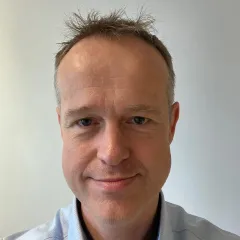
Patrick LOFFELD is the R&D Program Manager for Digital Transformation at AkzoNobel, leading technology-driven projects since 2022. Previously, he managed Data & Statistics at AkzoNobel and has over two decades of experience in process improvement, quality control, and operational excellence. His roles have spanned leadership positions at Nouryon and AkzoNobel, including Lean Six Sigma Master Black Belt and Regional Quality Manager. Patrick holds a PhD in Physical Organic Chemistry from Utrecht University.
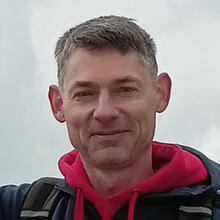
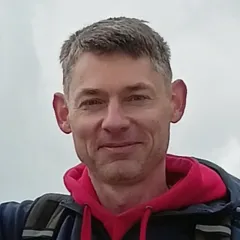
Jacek ŻEGLIŃSKI is a Senior Process Development Scientist at APC Ltd. in Dublin/Ireland. He utilises predictive modelling to gain better process understanding and to design more efficient and robust processes for drug product manufacturing. Jacek develops and implements modelling tools related to crystallisation and reaction kinetics, including the solvent effects on solubility, nucleation, morphology, control of polymorphism, and rate of reactions.
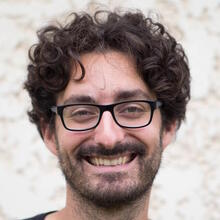
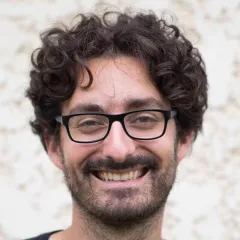
After completing my master’s degree at Université Pierre et Marie Curie in France in 2016, I pursued my PhD at the Max Planck Institute für Kohlenforschung in Mülheim, Germany, under the supervision of Prof. Dr. Frank Neese. Upon graduating in 2021, I joined AstraZeneca as a computational chemist in Chemical Development. My work involves supporting route and process design through physical property predictions and molecular modeling, as well as developing capabilities to automate and streamline predictive workflows.
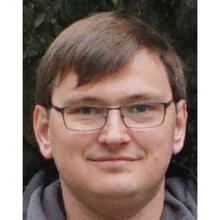
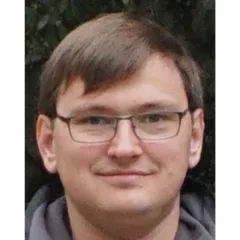
Volker SETTLES studied chemistry at the University of Marburg, completing a semester abroad at Heriot-Watt University in Edinburgh. After earning a PhD in quantum chemistry under Bernd Engels at the University of Würzburg, Volker joined BASF in 2013 as a scientist specializing in quantum chemistry. Since 2022, Volker has been a principal scientist at BASF in Ludwigshafen, Germany.
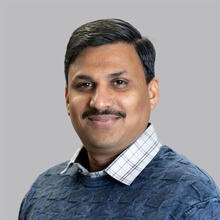
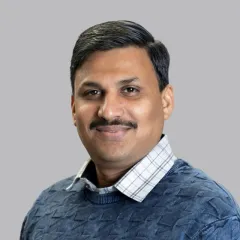
Dr Rupesh V. CHIKHALE works as a Research and Application Scientist at the Cambridge Crystallographic Data Centre, Cambridge (CCDC), Cambridge, UK. He earned his Ph.D. in pharmaceutical sciences and did several postdocs at the University of Manchester, the University of East Anglia, and the University College London, U.K. With more than 15 years of experience in various areas of drug discovery, he is spearheading research in the application of generative AI in drug discovery. He specializes in medicinal chemistry, analytical chemistry, and computer-aided drug discovery. He focuses on developing novel anticancer and anti-infective agents targeting protein targets and conventional and non-conventional DNA structures. With his keen interest in developing novel strategies for targeting tuberculosis his current research is focusing on applying AI and Physics-based methods in drug discovery.
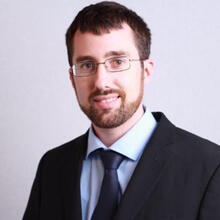

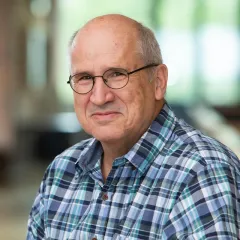
Bjoern WINKLER is the head of the crystallography-mineralogy group at the Johann Wolfgang Goethe-University in Frankfurt a.M. in Germany. He received a diploma in Mineralogy/Crystallography from the Technical University of Berlin. He obtained his PhD in Mineral Physics in Cambridge (UK), and then worked as a post doc in the field of neutron scattering at the Center for nuclear studies in Saclay (France). Afterwards, he became an assistant professor in Kiel (Germany). Since 2002, he is full professor in Frankfurt. His main interest is understanding structure-property relations of crystalline materials. His group combines atomistic model calculations with state-of-the-art ex-periments (mostly laser-heated diamond anvil cell studies) to obtain and characterize novel compounds at high pressures and temperatures and regularly contributes to in-strument developments at large scale research facilities.
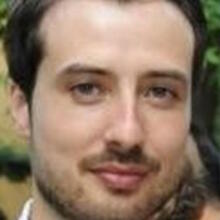
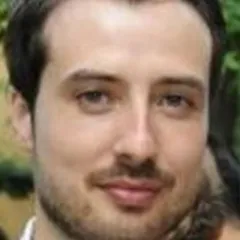
Ricardo joined Hovione on 2011. From 2011 to 2020, he worked in QC Labs, performing batch release, and was responsible for the validation of products into the commercial phase and managing teams of the stability program. In 2020 he joined the Computerized Analytical Services team, starting in the implementation of BIOVIA ONE Lab in all QC labs. From 2022 onwards he is the manager of the Team that implements, trains, and provides support to all labs using ONE Lab.
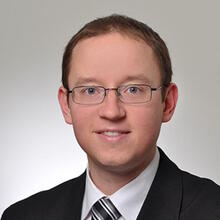
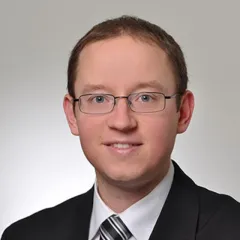
Florian KLUNKER is Technology manager at Huntsman Advanced Materials being responsible for Knowledge and Resource Management. He has an education background in mathematics and material science. After 10 years of research at university at Clausthal University of Technology and ETH Zurich in polymer-fiber composites, he demonstrated the benefits of modelling and simulation at Huntsman with over 100 customers and developed new technologies to enable non-research colleagues to explore the world of modelling and simulation with ease. In this environment he developed towards project and knowledge management within Huntsman Advanced Materials with the goal to improve material insight and therefore productivity increases to all functions by providing visualization and prediction tools adopted to the qualification of the various teams.
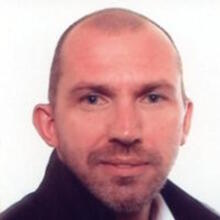
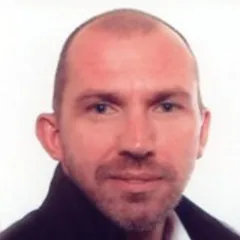
Pascal has more than 20 years of experience in lab automation in the CMC area. He is currently responsible for the digital integration of lab systems to enable predictive technologies, while maintaining operational efficiency and compliance. Pascal holds a MSc and PhD in Analytical Chemistry from the University of Antwerp.

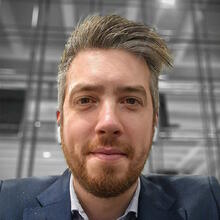
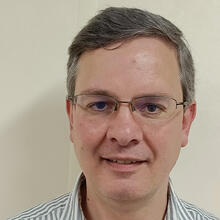
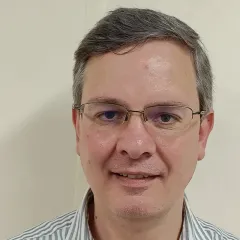
Chris has a Ph.D. in chemistry and over 11 years’ experience as an atomic scale DFT modeler at Johnson Matthey. His research focuses mainly on molecular-type systems where he works closely with experimentalists across the various JM businesses to provide modelling support.
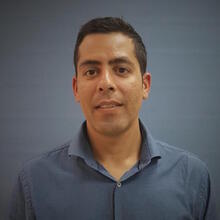
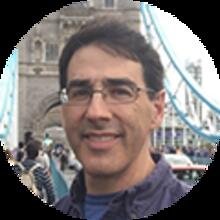
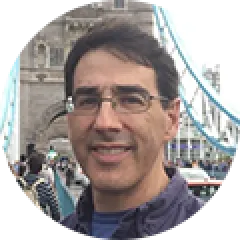
Marty is a process chemist (by training) but has been working on documentation platforms and technologies for the past decade. He is part of a team that is focused on evolving a modern pharmaceutical development organization towards a structured data-first documentation paradigm, using a widely diverse set of tools from BIOVIA and others. He’s been using Pipeline Pilot, the focus of this presentation, since 2015, generally in the context of OneLab-based solutions.
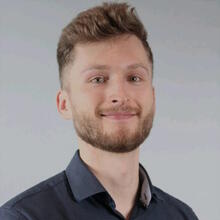
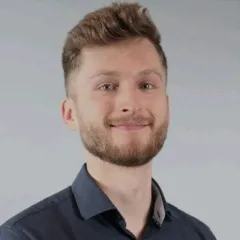
Martin Strachon is a Digital Scientist in Analytical R&D at Pfizer, based in Sandwich. He specializes in laboratory digitalization, with expertise in Python and Pipeline Pilot automation, machine learning, and integration with BIOVIA ONE Lab. Martin contributes to the development of digital test methods and data-driven workflows.
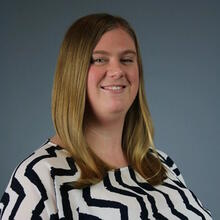
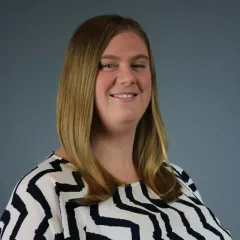
Dr. Lucy M. MORGAN is a Senior Analytical Chemist and Data Scientist at Pfizer, Sandwich. She holds an MSci (Hons) in Forensic Science and a Ph.D. in Chemistry. At Pfizer, Lucy develops digital processes to improve efficiency, ease documentation burdens, and provide structured data access. She collaborates with other scientists to create intuitive tools to enhance their workflows. Additionally, she builds predictive machine learning models for chromatography and has also been involved in predictive IMMS and UV modelling.
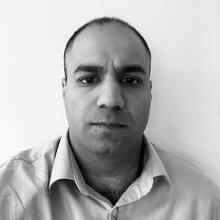
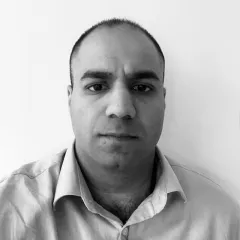
Irfan Khan has a master’s degree in physics from Royal Holloway, University of London. Irfan is a Senior Applications Engineer on the hardware product team at Quantinuum.
He has worked for Quantinuum since 2018, previously holding positions with the scientific technical team and contributing to R&D and software development for chemistry-related projects.
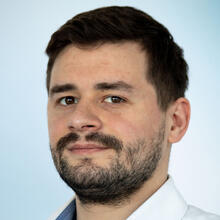
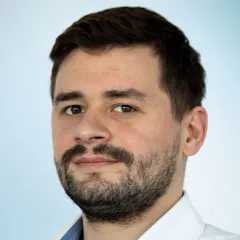
Lukas RASSPE-LANGE completed his Master in Business Administration and Engineering at the RWTH Aachen in October 2020. His specialization was in Mechanical Engineering with special focus on Energy Systems engineering. During his study at the RWTH he was working in building automation at the Institute for Energy Efficient Buildings and Indoor Climate. He then switched his field in July of 2021 to pursue a PhD in Professor Leonhard’s molecular systems engineering group at the Institute of Technical Thermodynamics in Aachen. His research centers around the fully automated design of best in class substances for selected applications which is also going to be the scope of the talk.
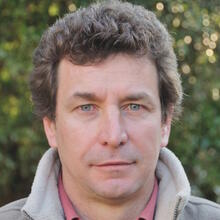


Maria Cristina is a Senior Researcher in the Institute of Chemical Sciences and Technologies “Giulio Natta” (SCITEC) of the Italian National Research Council (CNR). Since 2017 she has been responsible for the SCITEC-CNR section in Rome where she leads the laboratory of Molecular Modelling and Drug Design. Her research primarily involves applying computational chemistry to biochemistry and health, which has led to understanding several molecular mechanisms responsible for disease development and resulted in significant patents for treatments of rheumatoid arthritis, ovarian cancer, and senolytic compounds. Member of Board of the National Ph.D. in Artificial Intelligence for Health, she also integrates physics-based modelling with deep learning tools.
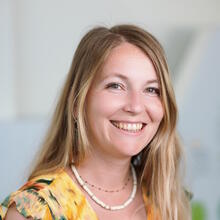
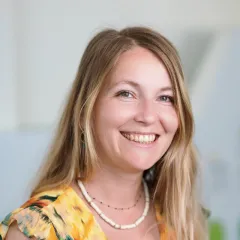
After a PhD in computational chemistry and material science, Sophie LOEHLÉ joined TotalEnergies in 2014 as molecular modeling engineer. She was first seconded in different European academic laboratories specialized in theoretical chemistry. Since 2020, she was nominated expert in molecular modeling at TotalEnergies. Since 2022, she is project leader to implement Automation & IA as well as Computational Chemistry and eco-design approaches for the development of new product for new mobility and industry.
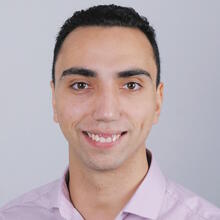
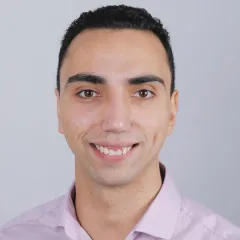
Part of Trusted Data team at UCB, I mainly support manufacturing quality check chemists with reporting and dashboarding solutions since one year.
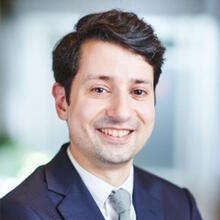
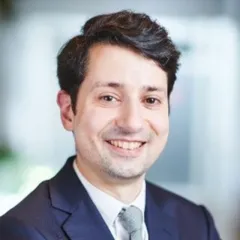
Currently driving the Digital Transformation of CMC Development at UCB. Former Director Digital and Automation Technology for Manufacturing & Integrated Supply Chain at AkzoNobel. Former Head of Digital Manufacturing and Industry 4.0 at Yara. Previously Senior Manager at Accenture and Technology Consulting Lead for Chemicals, Natural Resources, Energy and Utilities clients in Belgium. Started my career at Total, first in global IT infrastructure roles, then in charge of applications supporting the Petrochemicals business.
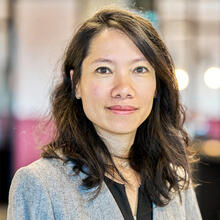
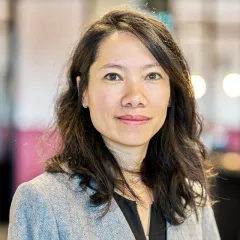
Phu is leading the implementation of ELN systems for CMC Development laboratory, focusing on delivering structured data capture to enable data analytics, enhancing digital processes and optimizing workflows. With a strong scientific background and extensive experience in digital transformation, her previous roles include leading a quality process digitalization initiative for GSK and managing a R&D research group for a spin-off specialized in cell-based bone treatment.
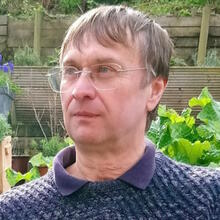
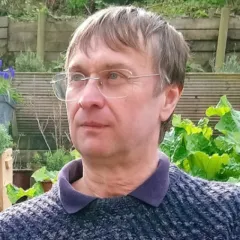
Ian has worked for Unilever for over 36 years, developing and applying a range of capabilities to enable the in-silico development of new ingredients and new formulations across the range of Unilever’s products. Mainly these use data driven modelling methods, employing whatever machine learning and optimization techniques are best suited. As a user of Pipeline Pilot since 2001, all aspects of a project, from the initial DoE to the final web app that delivers the models to Unilever formulation scientists are performed using Pipeline Pilot.

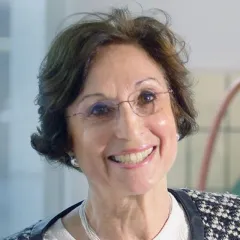
Francine C. ARCHER is a CNRS Research Director Emeritus at the Saints-Pères Paris Institute for the Neurosciences (SPPIN), Université Paris Cité. As a medicinal chemist, she developed strong expertise in molecular modeling, closely integrating synthetic chemistry and biology. Her work has led to major advances in receptor activation mechanisms, virtual high-throughput screening, and proof-of-concept studies validating therapeutic targets.
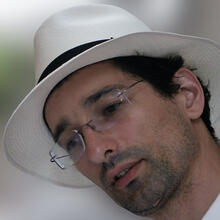
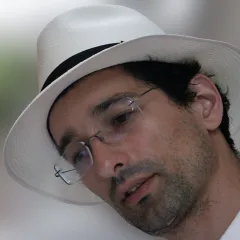
Gabor CSÁNYI is professor of molecular modelling at the University of Cambridge. He obtained his Ph.D. at the Massatchusetts Institute of Technology in 2001, then spent six years at the Cavendish Laboratory in Cambridge before joining the faculty of the Engineering Laboratory. His early interests were in concurrent multiscale modelling in the condensed phase, and later he developed the application of machine learning tools to derive first principles force fields from electronic structure data. He was the recipient of the Leverhulme Early Career award, the F. W. Bessel award of the Alexander von Humboldt foundation and the Argyris Visiting Professorship
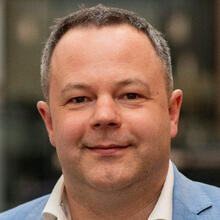
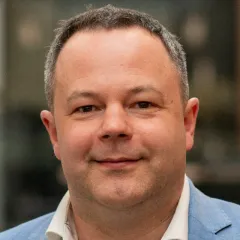
James ELLIOTT is Professor of Macromolecular Materials Science at the University of Cambridge. He is currently on sabbatical leave and enjoying getting back to full-time research on polymers and carbon nanomaterials, with a particular focus on energy and sustainability. He is a Fellow of the Institute of Materials, Minerals and Mining, Director of the EPSRC CDT in Computational Methods for Materials Science, and Professorial Fellow at Fitzwilliam College, where he directs studies for students in the physical sciences.
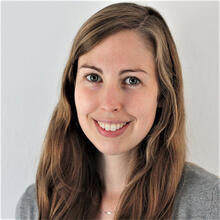
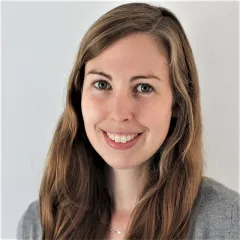
Rebecca is an Associate Professor and EPSRC Research Fellow in the Department of Materials at Oxford University. Her work focuses on the structure and bonding of materials at the atomic scale and bridges the gap between experiment and theory. She is one of the authors of the OptaDOS code and has worked on a variety of materials from doped graphene to zirconia. Rebecca’s current research interests include predicting vibrational spectra measured with the electron microscope, defects in rare earth superconductors and interpreting X-ray spectra from battery materials.
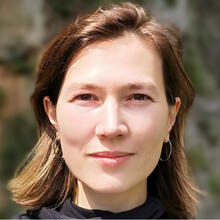
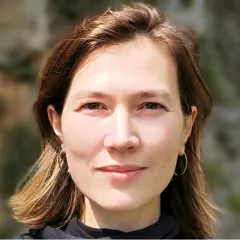
Scientist and software developer. Current focus on data science, machine learning and AI for materials science and formulations.
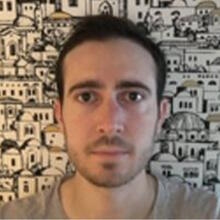
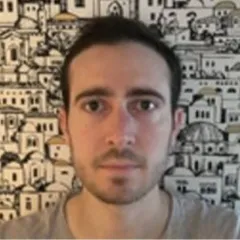
Dr. Alexandre CABAYÉ is working as solution consultant for the last 5 years and has an extensive experience in research on small molecules and protein modelling. He holds his Ph.D in Molecular Modelling from the University of Paris Cité.

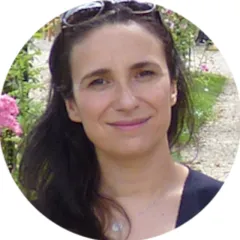
Anne GOUPIL-LAMY, Ph.D., principal field application scientist and Science Council Fellow at BIOVIA, obtained her doctorate in molecular biophysics from the University of Pierre and Marie Curie (Paris VI, France). She studied protein dynamics and denaturation using molecular dynamic simulations and neutron scattering experiments under the supervision of Professor Jeremy C. Smith. Goupil-Lamy joined MSI (now BIOVIA) in 1998 as a support scientist and gained expertise in the many modelling areas supported by BIOVIA' life science modelling tools. While managing BIOVIA' contract research group for many years in Europe and worldwide, she performed feasibility studies, developed proposals and was involved in the delivery of structure-based design and ligand-based design projects with one contract resulting in a patent. As a pre-sales scientist, she has performed several validation studies in fragment-based design and protein-protein interactions that were presented at conferences and to customers. She is also involved in biotherapeutics projects focusing on antibody design.
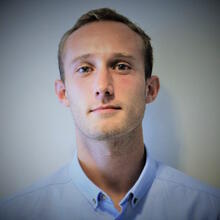

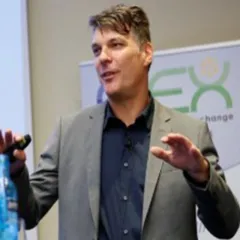
Dr. Björn LOEPRECHT is an Industry Process Consultant at BIOVIA, Dassault Systèmes. He has helped building strategic relationships with a number of key Dassault Systèmes partners, by designing scientific innovation and information strategies. He has consulted many chemical and life science companies in streamlining and digitalizing their R&D processes. Dr. LOEPRECHT holds a Ph.D. in Theoretical Chemistry from Leipzig University.

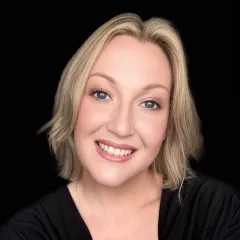
Expertise: Pipeline Pilot, CISPro
Claire has recently joined BIOVIA as an Industry Process Consultant. Claire is an experienced chemist, with 10 years in the laboratory primarily focused on Infectious Diseases but with experience in Oncology and also Radioisotope chemistry. For the last 7 years Claire has been focused on SaaS Solution Presales within the Life and Material Science industries.
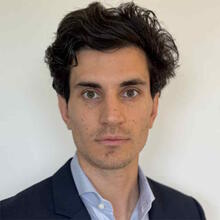
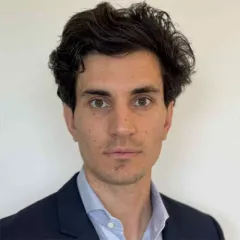
Expertise: Data Science, Machine Learning, Data pipelining, Pipeline Pilot, Pipeline Creator, Machine Learning Workbench
Clement is an Aerospace Engineer with 10 years of experience, having worked in France, Germany, and the US. Specializing in aerospace engineering, cloud computing, and data science, he has collaborated with industry leaders such as Dassault Systèmes, NASA, and Airbus. Now a Product Manager at Dassault Systèmes, Clement oversees the development of cloud-based Machine Learning applications and Pipeline Pilot. He is driven by a passion for health and science topics.

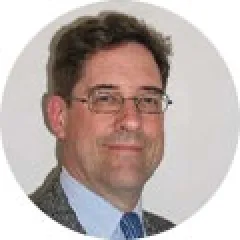
David joined a forerunner of BIOVIA 30 years ago, focusing on materials modelling and simulation. Shortly after that he became captivated by data science, machine learning, and now AI. His “circle of competence” extends just beyond Pipeline Pilot.
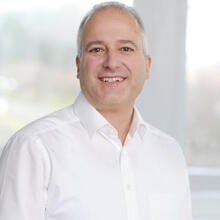
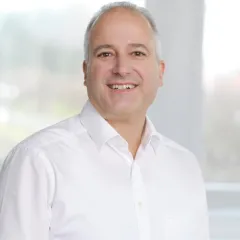
Expertise: Laboratory Informatics, Materials Sciences
Managing the European Tech Sales Team covering the BIOVIA solutions working closely with customers in Consumer Package Goods, Oil and Gas, Chemical, Automotive, Aerospace and Defense and other industries. Part of Dassault Systèmes since 2014 with nearly 30 years of experience in cheminformatics (Accelrys, Symyx, Elsevier, MDL). PhD in organic Chemistry from the University in Freiburg.


Frédéric BARBÉRIS has been working for 25 years at Dassault Systèmes Life Science, in direct relation with customer’s end-users to help addressing their daily challenges at the desk and in the laboratory.


Expertise: Lab Informatics, ELN, LES, LIMS, Instrumentation and Data Acquisition, Data Analytics
Bio: At BIOVIA Gene is providing the vision, strategy and management of the Laboratory Management product portfolio that includes the Electronic Laboratory Notebook, Laboratory Information Management System and the Laboratory Execution system.
Gene has over 30 years of experience in the Life Science industry developing and delivering Laboratory informatics solutions for the research, development and quality control labs.
Prior to joining BIOVIA, Gene led product development efforts for Zymark Corporation and REMP USA.
Gene obtained is BS in Mechanical Engineering from the University of Massachusetts in 1991.
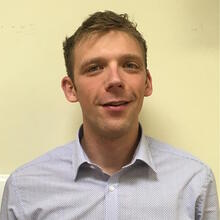
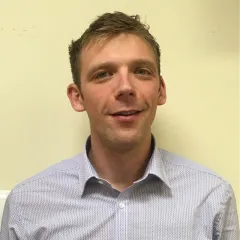
Expertise: Pipeline Pilot, LLMs, Lab Workflows, Data Analytics, Automotive Battery Materials
Gregory is an Industry Process Scientist at BIOVIA, with a focus on cheminformatics and materials science. Greg is an experienced chemist with extensive knowledge in homogeneous and heterogeneous catalysis, commodity chemicals, and structure-property studies.
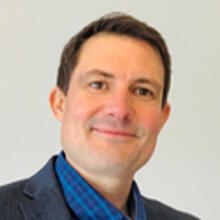
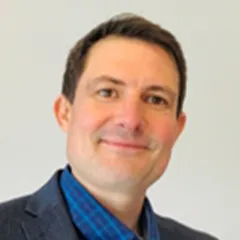
Expertise: Materials Modeling & Simulation; Energy Production & Storage; Polymer Resins & Composites; Pharmaceutical Development; Materials Science On Cloud & On Premise; Sustainable Products & Processes
With background in soft materials, James has worked with customers in applying BIOVIA’s molecular modeling and simulation solutions to innovate new materials for more than twenty years, and is currently the Product Manager for Materials Studio. He has publications and patents in a range of topics, and is especially interested in the application of coarse-graining methods and scale bridging strategies for enabling multiscale-multiphysics models.
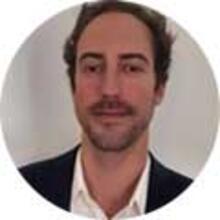
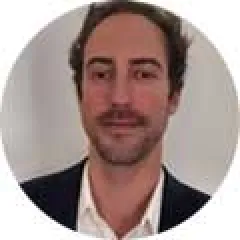
João Ines serves as a Life Science Solution Consultant at BIOVIA-Dassault Systèmes in the EMEA region, bringing over a year and a half of expertise to his role. With a diverse educational background encompassing chemical engineering and computational chemistry, Joao's career has been marked by a transition from cheminformatics research to the dynamic fields of Life Science and Biopharma.
Today, Joao's primary focus lies in identifying and implementing cheminformatics solutions tailored to the specific needs of the life science industry.
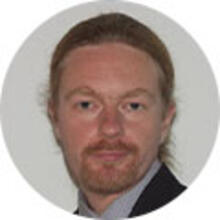
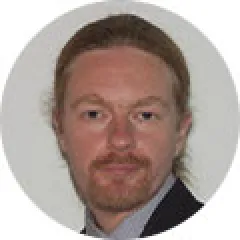
Expertise: Atomistic simulations, Lab informatics and Data Science.Materials Science and Battery Materials
Bio: Dr. Johan M. CARLSSON is a Senior Industry Process Scientist and Fellow of the Science Council at the BIOVIA brand of Dassault Systèmes. He received his Ph.D. in Physics from the University of Gothenburg in Sweden.
He subsequently headed the Nanoporous Carbon group in the Theory department of Fritz-Haber-Institut der Max-Planck-Gesellschaft in Berlin for six years. In 2008, Dr. CARLSSON joined the Contract Research group at BIOVIA and moved to the Technical sales Department in 2011.
In his role as Senior Industry Process Scientist, he helps customers to solve their scientific problems virtually by modeling and simulation techniques and practically by lab informatics using the BIOVIA Software Solutions. As a Fellow of the Science Council, he gives advice for the scientific strategy of the BIOVIA brand.
The research interests focus on computational materials science and cover metals, carbon, and battery materials and he has published 20 articles in scientific journals, which have received over 10000 citations in total.
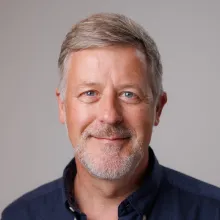
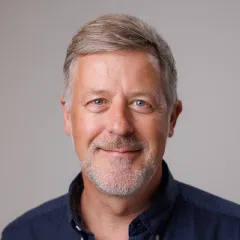
Kevin O’Leary has many years of experience in executive management, CEO and R&D development and has a deep knowledge of life sciences quality and regulatory. AS BIOVIA VP R&D, he leads the direction for all Quality & Regulatory solutions on Dassault Systèmes 3DEXPERIENCE platform. Kevin has worked in the pharmaceutical industry, both in the U.S. and Europe.YQuality Regulatory and Product Lifecycle in Biopharma and Med Device.

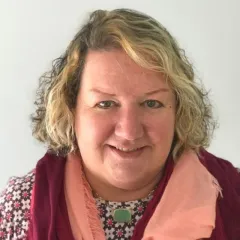
Expertise: Lab Informatics, ELN, LIMS, Digitalization
Kirsten GESENBERG is portfolio director for BIOVIA ONE Lab products. She began her career as a small molecule process chemist in the pharmaceutical industry. Since joining BIOVIA more than 15 years ago, she has been involved in the successful implementation of BIOVIA ONE Lab and Workbook across the Life Sciences industry.

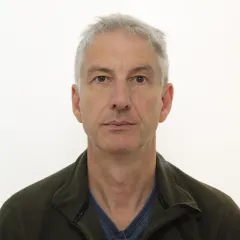
Marc MEUNIER, Ph.D., principal field application scientist and Science Council Fellow at BIOVIA, holds a master's from Pierre and Marie Curie University (Fr) and received a doctorate in chemistry from Bangor University (UK). After completing his doctorate he worked as a postdoctoral research fellow at Imperial College, London. He joined BIOVIA in 2000 as a product specialist for materials modelling. MEUNIER's research interests include the study of nanodielectrics, the simulation of polymeric materials used in membrane technology, pharmaceutical materials science and more recently the growing field of materials informatics. He is on the editorial board of the journal Molecular Simulation; his publications appear in Chemical Physics, Applied Physics and Polymer journals; and he has recently edited a book entitled "Industrial Applications of Molecular Simulations.
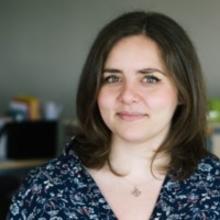
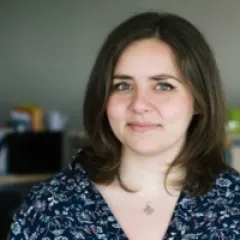
Expertise: Lab Informatics, Lab Data Analytics, Structured Document Authoring/CMC Authoring, Process Development, Quality Control
Margaux has experience in both pharmaceutical R&D and Manufacturing. She first worked as a Data Specialist in Manufacturing at UCB BioPharma to help QA ans QC teams ensure process control and compliance through data monitoring. She then joined Pierre Fabre as a project manager to digitalize Reasearch and Phamaceutical Development laboratories using BIOVIA solutions. She is now part of BIOVIA Pre-Sales as Solution Consultant, specializing in Solutions for QC and manufacturing labs.

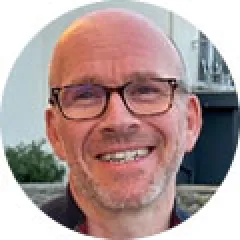
Expertise: Biological and Chemical Registration. Informatics. Drug Discovery/ Life Science Research
Bio: Neil is a Senior Product Manager at BIOVIA, based in Cambridge in the UK. For over 20 years, Neil has been responsible for registration offerings within BIOVIA, including Materials, Biological and Chemical Registration as well as a variety of other offerings in the past including Pipeline Pilot Collections and more. Neil has a bachelor's in Microbiology and Virology from the University of Warwick, UK and a PhD from the University of Wales, UK.

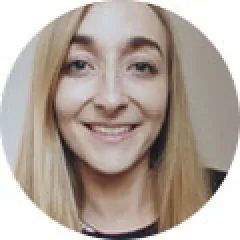
Niamh FINN is a Solution Consultant at BIOVIA, Dassault Systèmes and has been with the company for 2 years. Since studying Biological, Biomolecular and Biomedical Science at University College Dublin, Niamh’s background has been in Pharmaceuticals specializing in Quality Control.
In her role, Niamh leverages her background to provide scientific and technical support to our customer’s in adopting solutions for Document Management, Quality Process Management, Learning management and Laboratory Informatics.
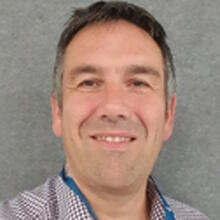
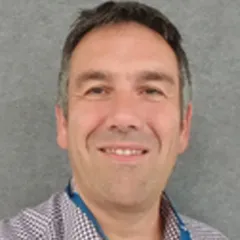
Phil COCHRANE has a Ph.D. in organic chemistry, specializing in the synthesis of indole alkaloids, and has amassed over 20 years of experience working with Pipeline Pilot as a services consultant, both independently and as part of Accelrys, where his expertise in chemistry has been highly valuable and earned him a reputation as an industry expert.

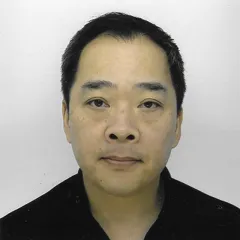
With over 20 years experience in the Life Science Industry specializing in laboratory informatics, working closely with customers in applying the BIOVIA ONE Lab solution into their end to end processes. As a portfolio senior manager, to provide feedback from the industry to the product management team to help ensure that the laboratory solutions meets the industry needs.

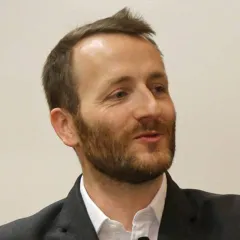
Expertise: Scientific Informatics, Machine Learning, Structured Content, Digital Transformation
Stéphane joined the BIOVIA team 16 years ago to advise scientists and engineers, from the lab bench, the plant, hospitals, and the executive team, in their innovation endeavour. As a pharmacist coming from the industry, and with my scientific informatics experience, I could help you understand how to effectively use your data and improve your processes with BIOVIA Discoverant and BIOVIA Pipeline Pilot.

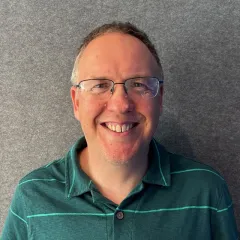
Expertise: Materials Science and Formulation, Computational Chemistry, Materials Modeling, Sustainability, Physics-Based Modeling, AI Based Modeling
Bio: Stephen TODD is a Strategy Planning Expert for the BIOVIA team at Dassault Systèmes UK with a special focus on materials science and simulation tools. Prior to joining the Strategy team, Stephen was the Portfolio Manager for BIOVA’s discrete modeling and simulation tools and worked for 15 years with various stakeholders to build the market leading Materials Studio simulation product. He holds a PhD in molecular modeling of liquid crystals from the University of Hull, UK and enjoys getting people excited about science.
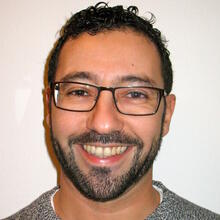
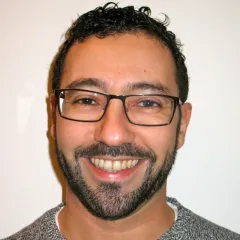
Taoufiq serves as a Life Science Solution Consultant at BIOVIA-Dassault Systèmes in the EMEA region. With a unique background that bridges advanced biomedical research and innovative technology, Taoufiq is focusing on how to support the digitalization of modern biology.
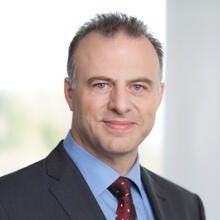
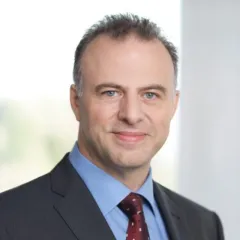
Tarkan is an Expert Solution Architect at BIOVIA. With 36 years of experience in digital transformation and innovation, Tarkan plays a crucial role in the implementation of Dassault Systèmes enterprise solutions to enhance research and development processes.

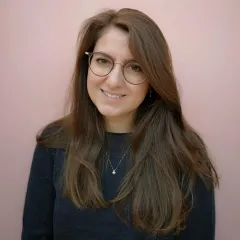
Isabella TELÒ, Ph.D.Life Sciences & Healthcare Industry Solution Experience ManagerIsabella holds a degree in Medicinal Chemistry and Pharmaceutical Technology and a PhD in Pharmaceutical Sciences. She began her career at Sanofi as a formulation scientist, focusing on biologics. She later joined Spinofrin, an innovative pharmaceutical startup, where she led internal portfolio strategy and business development initiatives. In May 2023, Isabella joined Dassault Systèmes’ Life Sciences & Healthcare Industry team as a Solution Experience Manager.
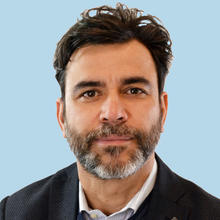
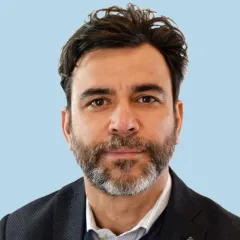
Walid DARGHOUTH joined Dassault Systèmes in 2006. Walid holds a Master degree in informatics from Toulouse university in France and an MBA from Bologna university in Italy. Walid’s has more than 20 years of consulting experience in Consumer Goods industry, with expertise in customer engagement for transformation and deploying innovation projects. Over the last 4 years, Walid is leading the Home & Lifestyle and CPG & Retail Industry Solution with focus on defining the industry solution portfolio to address specific industry challenges around packaging, product and formula development & optimization, Lab digitalization, manufacturing scheduling & execution and solving inbound and outbound supply Chain puzzles.
